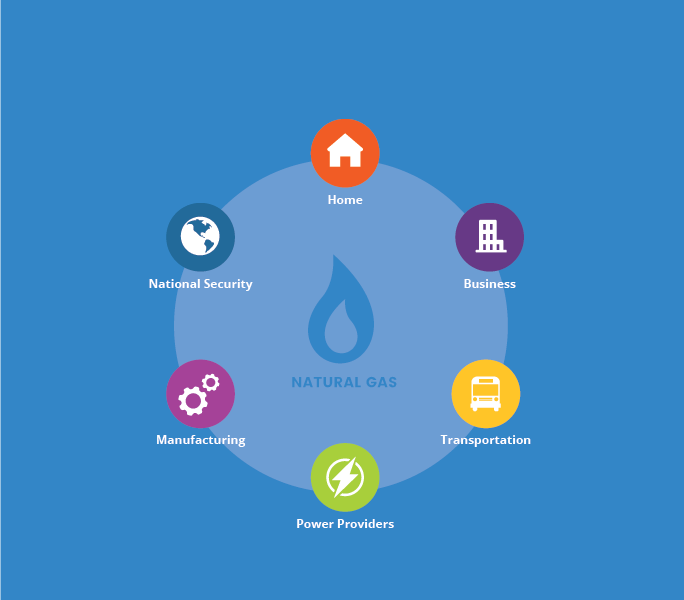About Natural Gas
Natural Gas is a fossil fuel used as a source of energy for heating, cooking and electricity generation. It is also used as a fuel for vehicles and as a chemical feedstock in the manufacture of plastics and other commercially important organic chemicals.
Natural Gas is generally considered a non-renewable fossil fuel because it was formed from the remains of tiny sea animals and plants that died 300 to 400 million years ago.
Raw Natural Gas is a mixture of different gases. The main ingredient is methane, a natural compound that is formed whenever plant and animal matter decays. By itself, methane is odorless, colorless and tasteless. Thus as a safety measure, a chemical odorant called Mercaptan which smells like rotten eggs is added so that the escaping gas can be detected.

Natural Gas and the Environmental Benefits:
All the fossil fuels such as coal, petroleum, propane and natural gas release pollutants into the atmosphere when burned. The good news is that natural gas is the most environment friendly fossil fuel which produces less Sulphur, carbon and nitrogen than burning other fossil fuels.





